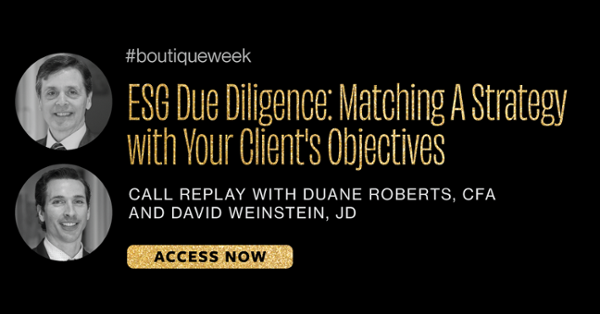ESG Strategies: You Asked, We Answered
With more than $50 billion flowing into ESG strategies in 2020, and more than 350 different sustainable funds available to investors, the space remains a hot conversation topic among advisors and their clients.
Not surprisingly, our own ESG strategy, the Epiphany Fund, is one of the funds we are asked about most. This blog takes a short look at a couple questions we are asked most frequently, and our explanation for each:
Q: What is your history within ESG investing?
Our history incorporating ESG principles into the investment process dates back 20 years, a timeline few asset managers can claim. For us, it started with a client request to run a Catholic, values-based portfolio. Over time, the performance of that portfolio helped us see the benefit of incorporating more of these values-oriented assessments into our stock analysis. We first saw a link between governance issues and performance, but that quickly opened us up to looking at environmental and social issues affecting the business as well. We believe that paying attention to these factors gives us a deeper understanding of the business and leads to better investment decisions.
Q: How is the Epiphany Fund different, and why should advisors consider in a client’s allocation instead of other ESG strategies?
Our strategy is designed to be a core holding within a client’s equity portfolio. The fund is sector neutral relative to its benchmark, spans the market cap spectrum for opportunities, and invests in both value and growth stocks. The broader exposure can help the end investor to get the market-like returns they depend on from their equity allocation. We believe niche ESG funds, or ones that load up on a particular ESG-friendly sector, such as technology, run the risk of producing returns that can deviate significantly from broader equity indices.
We also believe our work integrating ESG into the investment process is a differentiator. We don’t just screen out companies that have poor ESG ratings. Instead, we contract with 11 different vendors for ESG research and have an in-house analyst specializing in ESG issues. We also actively engage companies around material ESG issues, spurring the positive changes we believe ESG investors seek to make in society.



